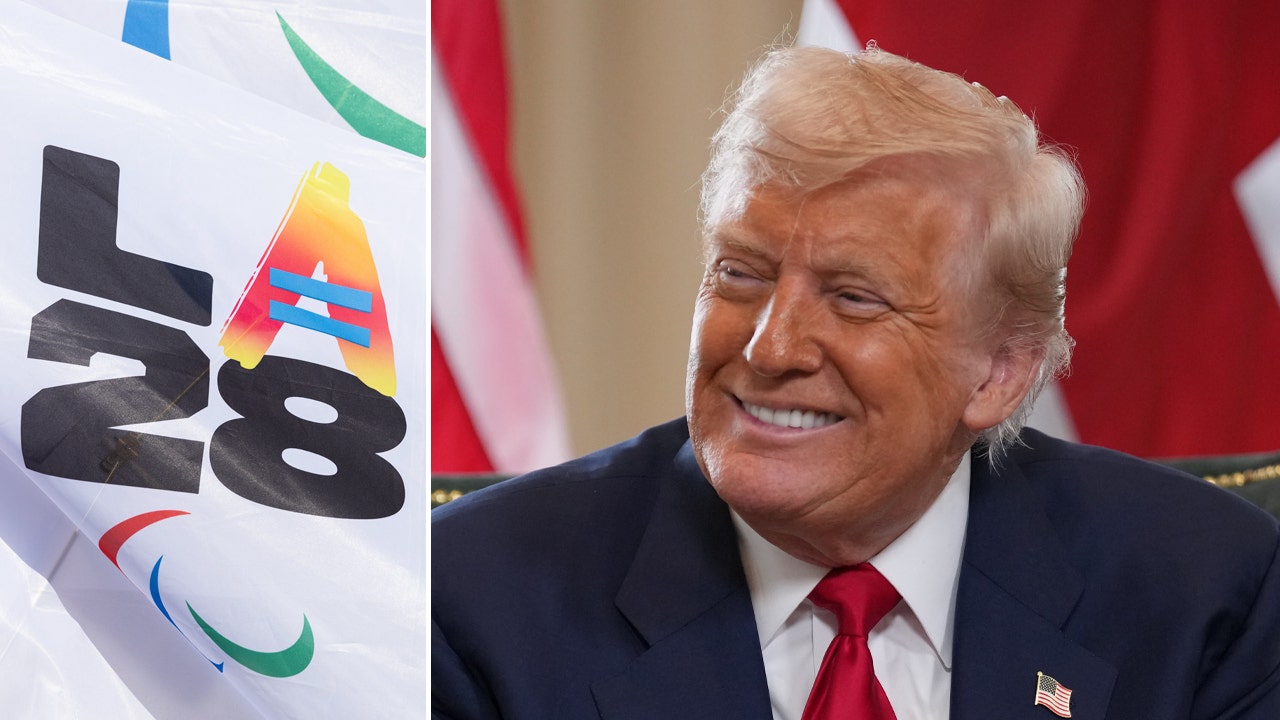
Who Could Get Moved Before NFL Trade Deadline? Jay Glazer's 3 Names to Watch
Entities mentioned:
- Jay Glazer: Professional pride, Influence, Recognition
- NFL Teams: Competitive spirit, Ambition, Power
- Alvin Kamara: Loyalty, Self-respect, Control
- Maxx Crosby: Loyalty, Determination, Pride
- Mark Davis: Control, Determination, Loyalty
Article Assessment:
Credibility Score: 75/100
Bias Rating: 50/100 (Center)
Sentiment Score: 55/100
Authoritarianism Risk: 20/100 (Strongly Democratic)
Bias Analysis:
The article presents a balanced view of the trade situation, quoting multiple sources and perspectives. It doesn't lean towards favoring any particular team or outcome.
Key metric: NFL Trade Deadline Activity
Let me tell you something, folks - this NFL trade deadline is shaping up to be a FOURTH QUARTER NAIL-BITER! The big-name players are digging their cleats in and refusing to be traded like seasoned veterans protecting the end zone. Alvin Kamara and Maxx Crosby are showing true team spirit, waving off trade rumors like they're swatting away weak pass attempts. But don't count out the general managers, they're still in the game, folks! They're scanning the field for any opening, looking to make that game-changing play before the clock runs out. It's a high-stakes chess match out there, with teams trying to outsmart each other like it's the Super Bowl of trades. Will we see a Hail Mary pass in the final seconds? I'm telling you right now, keep your eyes on the Dolphins - they might just throw a curveball with Chubb, Phillips, or Waddle that could change the whole landscape of the league! This is the kind of strategic maneuvering that separates the champions from the also-rans, and I can't wait to see who steps up to make that clutch play before the whistle blows on this trade deadline!

Pro wrestler Natalya Neidhart gives fellow WWE stars Liv Morgan and Bayley their flowers
Entities mentioned:
- Natalya Neidhart: Legacy, Professional pride, Recognition
- Bayley: Unity, Professional pride, Recognition
- Liv Morgan: Determination, Competitive spirit, Professional pride
- WWE: Legacy, Power, Influence
Article Assessment:
Credibility Score: 75/100
Bias Rating: 45/100 (Center)
Sentiment Score: 80/100
Authoritarianism Risk: 20/100 (Strongly Democratic)
Bias Analysis:
The article presents a balanced view, focusing on positive aspects of the wrestlers without obvious political leanings. It relies on direct quotes and factual information about careers and achievements.
Key metric: Women's Empowerment in Professional Wrestling
Let me tell you something, folks - this is a GAME-CHANGER in the world of professional wrestling! Natalya Neidhart is stepping up to the plate and giving a championship-level shoutout to her fellow competitors. This is the kind of team spirit that builds dynasties! Bayley's showing the heart of a true captain, always there for her squad, while Liv Morgan's bringing that fourth-quarter determination that separates the contenders from the pretenders. I'm telling you right now, these women are rewriting the playbook and raising the bar for the entire industry. It's like watching a sports movie come to life - the veteran passing the torch, the rising stars hungry for glory, and the unbreakable bonds forged in the heat of competition. This, ladies and gentlemen, is what builds LEGENDS!

MLS Awards: U.S. Men's Defender Tristan Blackmon Gets Key Honor; Who'll Win MVP?
Entities mentioned:
- Tristan Blackmon: Recognition, Professional pride, Ambition
- Vancouver Whitecaps FC: Competitive spirit, Pride, Ambition
- Major League Soccer: Recognition, Legacy, Influence
Article Assessment:
Credibility Score: 85/100
Bias Rating: 50/100 (Center)
Sentiment Score: 75/100
Authoritarianism Risk: 20/100 (Strongly Democratic)
Bias Analysis:
The article presents a balanced view of multiple MLS awards and candidates. It doesn't show favoritism towards any particular team or player, maintaining a neutral stance.
Key metric: US Men's Soccer International Competitiveness
Ladies and gentlemen, we're in the fourth quarter of the MLS season, and the league is STEPPING UP TO THE PLATE with these awards! Let me tell you something - Tristan Blackmon's defensive performance this year has been NOTHING SHORT OF LEGENDARY. This young gun has shown a CHAMPIONSHIP MENTALITY, anchoring that Whitecaps backline like a true captain. He's not just playing defense, folks - he's BUILDING A WALL and making opposing strikers pay for it! Blackmon's leap to the national team is a GAME-CHANGER for US Soccer. We're talking about a player who's bringing his A-game to the international stage, and that's the kind of CLUTCH PERFORMANCE that could take Team USA to the next level. This is the kind of DEFENSIVE DOMINATION that wins World Cups, people!

US hockey star Brady Tkachuk reflects on Trump phone call ahead of 4-Nations face-off final vs Canada
Entities mentioned:
- Brady Tkachuk: Competitive spirit, Pride, Loyalty
- Donald Trump: Power, Competitive spirit, Influence
- U.S. Hockey Team: Competitive spirit, Pride, Duty
- Canadian Hockey Team: Competitive spirit, Pride, Rivalry
- Mark Carney: Competitive spirit, Pride, Self-preservation
Article Assessment:
Credibility Score: 70/100
Bias Rating: 65/100 (Lean Right)
Sentiment Score: 45/100
Authoritarianism Risk: 40/100 (Generally Democratic)
Bias Analysis:
The article leans right, focusing heavily on Trump's perspective and actions. It presents Canadian actions more critically, while portraying US moves in a more positive light.
Key metric: US-Canada Relations
Let me tell you something, folks - this US-Canada rivalry is HEATING UP like a fourth-quarter shootout! The gloves are OFF in this high-stakes face-off between North American powerhouses. We've got President Trump stepping up to the plate, making that crucial locker room call to fire up Team USA. But hold onto your hockey sticks, because Canada's pulling some fancy stick-handling with that Reagan ad play! This isn't just a game anymore, folks - we're talking geopolitical power plays that are sending shockwaves through the diplomatic arena. With the Winter Olympics on the horizon, both teams are bringing their A-game, and let me tell you, the tension on this ice is THICK! It's like we're watching a sudden death overtime, with tariffs and trade deals flying like slap shots. This is the kind of rivalry that defines LEGENDS, and I'm telling you right now, we're witnessing history in the making!

Michael Jordan disapproves of ‘load management’ in today’s basketball and 3 things you missed from Tuesday’s NBA action
Entities mentioned:
- Michael Jordan: Competitive spirit, Professional pride, Legacy
- NBA: Control, Influence, Professional pride
- Oklahoma City Thunder: Competitive spirit, Ambition, Pride
- Giannis Antetokounmpo: Competitive spirit, Revenge, Determination
- Golden State Warriors: Competitive spirit, Determination, Pride
Article Assessment:
Credibility Score: 75/100
Bias Rating: 50/100 (Center)
Sentiment Score: 65/100
Authoritarianism Risk: 20/100 (Strongly Democratic)
Bias Analysis:
The article presents a balanced view of multiple NBA games and player perspectives. It doesn't show favoritism towards any particular team or player, maintaining a neutral stance in its reporting.
Key metric: NBA Player Participation Rate
Let me tell you something - this story is RIDICULOUS! We've got the GOAT Michael Jordan stepping up to the plate and calling out today's players for their 'load management' shenanigans! I'm telling you right now, this is a GAME-CHANGER for the NBA's Player Participation Rate. Jordan's championship mentality is throwing down the gauntlet to these young bucks, challenging them to show up and COMPETE every single night! Meanwhile, we've got the defending champs Thunder showing that championship DNA, coming through in the clutch to stay undefeated. And don't even get me started on the Greek Freak's revenge game against the Knicks - that's the kind of fourth quarter heroics that separate the contenders from the pretenders! The Warriors are bringing that defensive intensity, folks, reminding everyone why they've got those championship rings. This is the kind of competitive fire that separates the Hall of Famers from the bench warmers!

LSU women's basketball star questions governor's push for school to erect statue of Charlie Kirk
Entities mentioned:
- Flau'jae Johnson: Justice, Self-respect, Moral outrage
- Gov. Jeff Landry: Influence, Recognition, Righteousness
- Charlie Kirk: Legacy, Influence, Righteousness
- LSU: Unity, Recognition, Freedom
Article Assessment:
Credibility Score: 70/100
Bias Rating: 55/100 (Center)
Sentiment Score: 30/100
Authoritarianism Risk: 45/100 (Mixed/Neutral)
Bias Analysis:
The article presents both sides of the debate, quoting directly from key players. However, it leans slightly right by giving more context to Kirk's background and conservative event attendance.
Key metric: Campus Free Speech Index
Let me tell you something, folks - this is a HEATED MATCHUP between Team Free Speech and Team Social Justice! We've got a real CLASH OF TITANS here, with Gov. Landry making a bold offensive play by proposing a Charlie Kirk statue. But hold onto your hats, because LSU star Flau'jae Johnson is coming in hot with a DEFENSIVE SHUTDOWN! She's not just guarding the paint, she's guarding the entire campus against what she sees as a FOUL MOVE. This is a fourth-quarter nail-biter that could go into overtime, with the Campus Free Speech Index hanging in the balance. It's like we're watching a high-stakes game of political basketball, and both sides are leaving it ALL on the court!

US figure skater champion Alysa Liu opens up on being targeted by Chinese spying operation, FBI's protection
Entities mentioned:
- Alysa Liu: Determination, Competitive spirit, Enthusiasm
- Arthur Liu: Justice, Freedom, Security
- FBI: Duty, Security, Justice
- Chinese government: Control, Power, Influence
- Matthew Ziburis: Greed, Loyalty, Obligation
- USOPC: Competitive spirit, Unity, Professional pride
Article Assessment:
Credibility Score: 75/100
Bias Rating: 45/100 (Center)
Sentiment Score: 65/100
Authoritarianism Risk: 20/100 (Strongly Democratic)
Bias Analysis:
The article presents a balanced view of the situation, giving voice to multiple perspectives. While sympathetic to Liu and critical of Chinese actions, it maintains a neutral tone in reporting facts.
Key metric: Olympic Medal Count
Let me tell you something - this story is RIDICULOUS! We're talking about a young athlete who's not just facing competition on the ice, but in a high-stakes international game of cat and mouse! Alysa Liu stepped up to the plate with the determination of a true champion, refusing to let this curveball from the Chinese government knock her off her game. The FBI played outstanding defense, providing a rock-solid backline to keep Team USA's rising star safe. This is the kind of mental toughness that separates the contenders from the pretenders, folks! Liu's comeback is nothing short of a fourth-quarter miracle, shattering records and bringing home the gold for Team USA. I'm telling you right now, this is the kind of championship mentality that will have America dominating the scoreboard in Milano-Cortina!

White House responds after US Olympic team indicates it's looking into genetic tests to protect women's sports
Entities mentioned:
- United States Olympic & Paralympic Committee (USOPC): Competitive spirit, Fairness, Professional pride
- White House: Righteousness, Pride, Influence
- President Donald Trump: Determination, Power, Legacy
- International Olympic Committee (IOC): Fairness, Unity, Professional pride
Article Assessment:
Credibility Score: 75/100
Bias Rating: 65/100 (Lean Right)
Sentiment Score: 55/100
Authoritarianism Risk: 40/100 (Generally Democratic)
Bias Analysis:
The article leans right, focusing heavily on Trump's executive order and conservative viewpoints. While it includes some opposing perspectives, the framing and source selection favor a conservative stance on transgender athletes in sports.
Key metric: Olympic Medal Count
Let me tell you something, folks - this is a GAME-CHANGER in the world of sports! The USOPC is stepping up to the plate with a championship mentality, looking to level the playing field in women's athletics. They're not just talking the talk, they're walking the walk with genetic testing options. This is like bringing in instant replay to make sure every call is fair and square. The White House is cheering from the sidelines, backing Trump's executive order like it's the game-winning play. We're seeing a full-court press to protect the integrity of women's sports, and let me tell you, it's crunch time! The IOC is huddling up, ready to make some fourth-quarter moves to ensure fairness across the board. This isn't just about one race or one game - we're talking about the whole season, the whole legacy of women's athletics! It's a high-stakes match, and these players are leaving it all on the field!

NCAA delays rule change permitting college athletes to bet on professional sports
Entities mentioned:
- NCAA: Control, Professional pride, Security
- Division I Board: Wariness, Duty, Control
- Greg Sankey: Concern, Influence, Professional pride
- Charlie Baker: Control, Duty, Professional pride
- Roberta Page: Professional pride, Duty, Unity
Article Assessment:
Credibility Score: 85/100
Bias Rating: 50/100 (Center)
Sentiment Score: 40/100
Authoritarianism Risk: 35/100 (Generally Democratic)
Bias Analysis:
The article presents a balanced view of the NCAA's decision, including perspectives from multiple stakeholders. It doesn't appear to favor any particular side of the debate, maintaining a neutral stance.
Key metric: NCAA Sports Integrity Index
Let me tell you something - this story is RIDICULOUS! The NCAA is playing defense like it's the fourth quarter of the championship game, folks! They're delaying this rule change on betting like a coach calling a crucial timeout. It's a high-stakes game of cat and mouse between the NCAA and the gambling industry, and right now, the NCAA is trying to run out the clock. But make no mistake, this is just the first half. The real action is yet to come as college athletics faces its toughest opponent yet - the allure of easy money. This move by the NCAA is like putting in your second-string defense when you're facing Tom Brady - it might slow things down, but it's not going to stop the inevitable march down the field. I'm telling you right now, we're witnessing a pivotal moment in college sports history, and the NCAA needs to bring its A-game if it wants to maintain control of this rapidly changing landscape!

How to Watch 2025 World Series: Schedule, TV Channels, Streaming, Dates, Times
Entities mentioned:
- Los Angeles Dodgers: Competitive spirit, Pride, Legacy
- Toronto Blue Jays: Competitive spirit, Pride, Ambition
- FOX: Recognition, Influence, Professional pride
- MLB: Recognition, Legacy, Influence
Article Assessment:
Credibility Score: 85/100
Bias Rating: 50/100 (Center)
Sentiment Score: 70/100
Authoritarianism Risk: 15/100 (Strongly Democratic)
Bias Analysis:
The article presents a neutral, informative tone without favoring any particular team or platform. It focuses on providing factual information about viewing options and schedules.
Key metric: TV Viewership
Let me tell you something - this World Series matchup is going to be ELECTRIC! The Dodgers and Blue Jays are stepping up to the plate for what promises to be an epic showdown of titans! FOX is bringing its A-game, positioning itself as the exclusive broadcaster for this championship clash. This is the World Series, folks - the ultimate test of a team's mettle, where legends are born and dynasties are forged! With streaming options aplenty, fans won't miss a single pitch of this high-stakes battle. It's a whole new ballgame in the world of sports media, and FOX is swinging for the fences with this coverage strategy. The question is, will viewership numbers knock it out of the park or strike out looking? I'm telling you right now, all eyes will be on these ratings as closely as they'll be watching the action on the diamond!